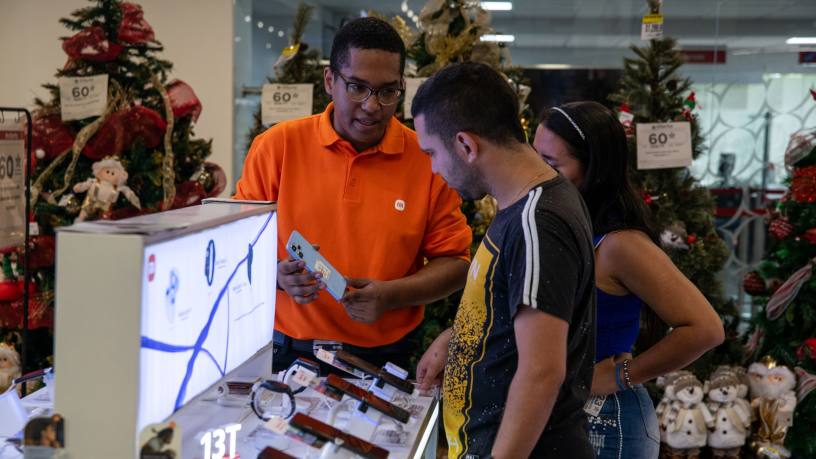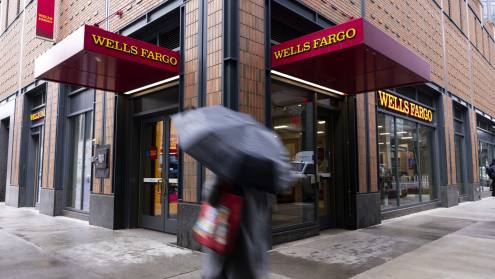At a glance
- Banking-as-service is reshaping the Latam banking sector by bringing in competition from non-banks and fintechs
- Organisations can now embed financial services into their business model through APIs
- BaaS aids SMEs in Latam by helping them obtain quick and easy access to financial services
Banking-as-a-service (BaaS), which allows non-banks and other fintechs to offer financial services to their customers, is slowly reshaping the Latin American financial services sector.
The BaaS market in the region is estimated to grow at a compound annual growth rate of 20.2% from 2022 to 2027, according to research company Technavio. And a report from Statista says that, in Latin America, there are roughly 2200 fintech companies that offer financial services, including payments and lending.
Thanks to high internet penetration, fintechs cater to the region’s big unbanked population who can access smartphones.
These fintechs put banks’ hegemony over the financial sector under question, which must resort to other models to diversify their services. In some countries, banks are also facing competition from other non-financial businesses.
In Mexico, fintechs have long promised to transform financing for small and medium-sized enterprises, but it is large retailers and digital marketplaces that are getting heavily into the banking business, as previously reported.
That’s where BaaS comes in handy, as banks themselves are enabling non-financial businesses — including cinemas, pharmacies and supermarkets — to offer financial services.
How are APIs enabling BaaS in Latin America?
Kiki Del Valle, executive vice-president, market development, Latin America and the Caribbean at Mastercard, says that although BaaS models are becoming more popular now, they are nothing new.
“These white-label partnerships between traditional banks and established retailers, like car dealerships and airline brands, go back more than a decade, but they were uncommon and expensive to deploy until application programming interfaces [APIs] allowed banks to connect with third parties easily,” she says.
The widespread adoption of API software across the region is allowing organisations to embed a wide range of financial services into their existing business models, through their partnership with banking infrastructure providers.
These new technologies also allow for quicker data exchanges between fintechs and their customers. “Over time, APIs have helped fintechs grow from offering bank accounts to small businesses to offering ancillary services such as expense management,” Ms Del Valle comments.
According to a report from Atlantico, while the uptake of open banking is rising, the sharing of data still remains uneven and a challenging thing to achieve for both digital and traditional bank service providers. Nevertheless, there is a visible gap between the performance of the two groups. The study found that API conversion rates from digital financial institutions amounts to 61% of the whole volume, compared to only 28% from traditional banks.
Today, fintechs are relying on partnerships with banks to provide a full stack of lending, servicing and card issuance. “That’s a departure from just a few years ago when a non-bank company wishing to offer these products had to go to a larger financial institution to piece these functionalities together,” says Ms Del Valle.
Ms Del Valle adds that BaaS providers are a positive addition to the industry as they unlock multiple possibilities and foster competition within the market, which, in return, allows the improvement of services delivered to end users, a trend that is particularly evident in more mature jurisdictions like Brazil.
“Over the past decade, we have witnessed a proliferation of fintechs offering digital solutions,” says Ms Del Valle. “In response, incumbent banks have recognised the need to modernise their products, offering more competitive and updated services, also through the help of a BaaS provider,” she says.
How BaaS helps MSMEs
A report from the Inter-American Development Bank states that Latin American micro, small and medium-sized enterprises (MSMEs) employ around 60% of the population, while accounting for 25% of the regional gross domestic product. Nevertheless, in spite of their importance, many of them struggle to access credit from financial institutions.
Lack of data to rely on for decision-making for banks and lenders is often the main obstacle that prevents MSMEs from accessing credit, which may be due to the company being too new or because there is insufficient data available to construct a credit score.
“There is one universal truth for small businesses in need of credit, which is that they needed it yesterday,” says Glenn Goldman, co-founder and chief security officer of Plurall, a fintech company that offers loans and savings products to MSMEs in Colombia through BaaS models. “BaaS services allow for faster and cheaper transaction times than standard banking loans,” he says.
According to Mr Goldman, often big banks lack the tools to properly assess the creditworthiness of these business owners, effectively cutting them out of vital banking services. “We created a platform that enables our customers to access the basic financial services such as loans, debit cards and digital wallets,” he says.
Plurall does not own a banking licence. Nevertheless, thanks to favourable fintech regulations in Colombia, the firm has established business agreements with other institutions, including with a subsidiary of Grupo Aval, one of the largest banking conglomerates in the country.
Mr Goldman says that BaaS is also reshaping the Latin American banking sector by bringing in new fintechs that can better serve MSMEs. “These new players can build incredibly successful businesses where they can quickly develop and improve products, which is something that traditional banks struggle to do — so I think that the banking sector is going to realise that these fintechs are here to stay,” he says.
It is too early to predict who between incumbent and new players will dominate the BaaS game. However, it seems clear the distinction between financial and non-financial services companies is becoming blurred.









